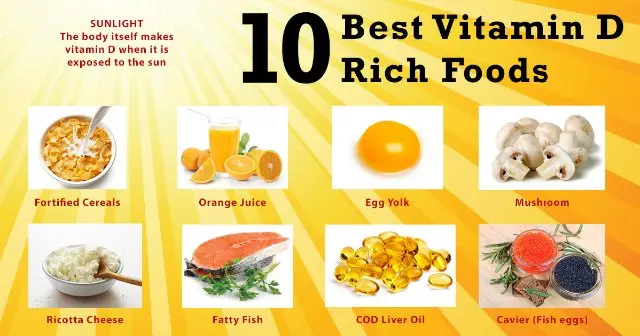
Hopefully you were able to soak in all the vitamin D over the summer. Now that summer is over, and we say hello to fall, we are one step closer to a decrease in daylight and an increase in seasonal affective disorder. Seasonal affective disorder (SAD) can decrease your energy, change your appetite, and make you feel depressed. Vitamin D can help manage these symptoms.
Whether you’re working or starting back to school this fall, deadlines and time management can always cause stress, lack of energy and exhaustion. As we get into SAD season, getting even a little sunlight throughout the day, several days a week, can be a great option for you. Try to do some work outside, take a walk around the block, open up the blinds - let’s beat SAD this season.
You can get vitamin D in 3 ways: through your skin (light exposure/therapy), from your diet, and from supplements. Although it may be called “vitamin” D, it is not actually considered a vitamin, but rather a hormone. This is because, in response to sunlight exposure, the body can actually produce its own vitamin D.

Vitamin D can improve your life by reducing inflammation, improving sleep quality, gaining a boost of energy, and can eliminate risks of various illnesses - such as cancer, osteoporosis, cardiovascular diseases, diabetes, and more. Studies have shown that, with a high enough dose of vitamin D, as you grow older, you can avoid bone fractures. In addition to fighting off possible bone fractures, vitamin D can help protect you against the flu and the common cold - especially as we make our way into winter, where these viruses are ready to attack.
A lack of vitamin D can affect your circadian rhythm, quality of sleep and how long you sleep. A good sleep efficiency is above 85% (normal) and really good sleep efficiency is about 90%. Typically it takes you 25 minutes to fall asleep and 25 minutes to wake up.
If you’re wondering how to calculate your sleep efficiency, use this calculator:
Total Sleep Time = 7 hours (420 minutes)
Minus time to fall asleep = 25 minutes
Minus time awakened = 25 minutes (5 minutes + 15 minutes +5 minutes)
Total time asleep = 6 hours and 10 minutes (370 minutes)
Now divide 370 minutes / 420 minutes = 88%
While 88% is within the normal range, there is still room for improvement!
A lower score can be an indicator of difficulties with your quality of sleep, which could potentially be in response to a deficiency in vitamin D.

One of the best things you can do for yourself this coming season is getting outside for at least 15-20 minutes several times a week - especially if you live in the snowglobe of Pittsburgh. Take advantage of the beautiful weather in early fall - get up a little earlier before you start your day, head outside, walk to a coffee shop or even just to one end of the street and back. The more you can get your body moving at the start of the day, the more energy you’ll have. The best time for some light exposure is between 10AM and 3PM.
As it gets closer to winter, make sure you are eating properly. The vitamin D your body is craving can be found in foods such as mushrooms, egg yolks, even any fortified milk - plant/nut milk is a great alternative for vegetarians and vegans. The best sources, though, can come from the flesh of fatty fish - salmon, tuna, mackerel - and even fish liver oil.
If you are limited to being able to access sun exposure, another great alternative is taking dietary supplements to be able to achieve the recommended levels of intake. To find the best level of supplements for you, talk with your physician and ask for a blood test. It may be recommended for either over-the-counter or a prescription dose of vitamin D to get you up to the best level for a happier life.

Vitamin D deficiency can be a factor that leads to depression among young college students and those in the workforce. In a study of over 600 young adults, it was found that those who spent less time in the sun, resulting in a lower vitamin D status were twice as likely to report depressive symptoms than those who were spending more time having sun exposure.
One of the best ways to decrease the chance of having a vitamin D deficiency is avoiding a bad diet. Sure, the hot pizza ordered in on a cold night sounds great. But is it the best choice? You probably want to aim more for the diets that can alleviate the inflammation throughout your body. The anti-inflammatory diet is a great option for this. You are able to eat delicious food while eliminating sugary, refined foods which can cause low energy, stressed induced days.
Between sun exposure and a healthier diet, you can help alleviate the stress on your body between reducing inflammation, soaking in the needed vitamin D, and not being left in the dark. Take a step away from your work when you can. Work outside while it is still nice out. Give your body what it is craving.